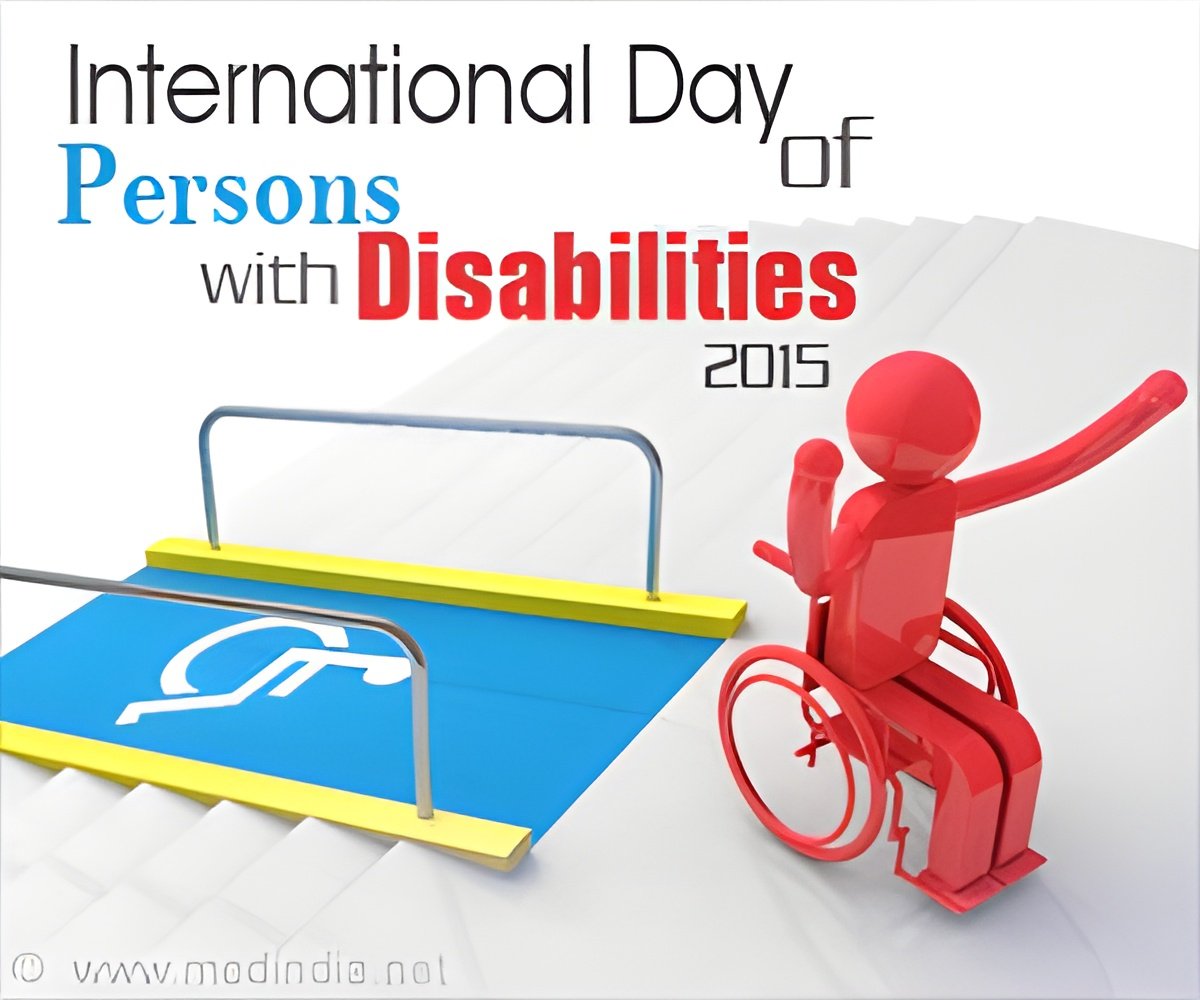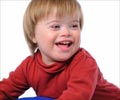The International Day of Persons with Disabilities 2015, an initiative by the United Nations, aims to end the discrimination against individuals with disabilities.

A total of 650 million people (10% of the world population) live with a disability in the world. About 20% of the world's poor are disabled. The percentage of children with disabilities, who do not have access to education is extremely variable and is between 65 - 85% in Africa. In many low-income and developing countries, only 5-15% of disabled individuals who need assistive devices have access to them.
Disability and Health
According to the World Health Organization, rates of disability are increasing due to population aging and increase in chronic health conditions. Disabled people have less access to health care services and thus experience unmet health care needs.People with disabilities need more health care than people without disabilities. A recent survey of individuals with serious mental disorders showed that between 35% and 50% of people in the developed countries, and between 76% and 85% in low-income countries, received no treatment in the year before the research.
In many countries, health promotion and prevention projects seldom target individuals with disabilities. For example, disabled women receive less screening for breast cancer than women without disabilities. Persons with diabetes and intellectual impairments are less likely to have their weight checked. Most countries exclude adolescents and adults with disabilities from sex education programs. People with disabilities may encounter with greater vulnerability to age-related conditions, engaging in health risk behaviors, higher rates of premature death, secondary conditions and co-morbid conditions.
Education and Employment Issues of People with Disability
Discrimination against people with disabilities includes inequitable access to educational programs and employment programs. Barriers to education can take a variety of forms including physical, technological, systemic, financial, or attitudinal. They can arise from an education provider's negligence to make available a requirement on time.Majority of adults with disabilities are either unemployed or underemployed, despite their ability and willingness to work in the society. Workers with disabilities face notable gaps in pay and employment benefits, compared to workers with no disability.
Requirements of disabled people related to employment include:
- Opportunities for post-secondary education, including college and vocational training.
- Ongoing preparation to promote job advancement and career development.
- Fair and reasonable wages and benefits.
- Opportunities for self-employment and business ownership.
- Opportunities to increase earnings without losing eligibility for needed public benefits.
Millenium Development Goals and Inclusive Development
The UN has recently set the Millennium Development Goals (MDGs). The eight development objectives aim to ensure the welfare of people across the world. They mainly aim to eradicate poverty. A recent report suggested that the MDGs can only be achieved with the inclusion of individuals with disabilities. Disability-inclusive goals would serve to implement some of the important Articles of the Convention on the Rights of Persons with Disabilities (CRDP). The CRPD does not introduce new rights. However, it reaffirms the need to promote and protect the human rights of people with disabilities.Time to Change YOUR Mindset and Time to Act
As the International Day of Persons with Disabilities 2015 urges, half of the issues of people with disabilities can be resolved if the society accepts them in its fold and stops discriminate against them. People who are not exposed to individuals with disabilities should realize that, despite their disability, a disabled person is just like a non-disabled individual. Everyone should ask themselves, what differences do I have with people with disabilities? Nobody should be discriminated for something they have no control over. Everyone should treat disabled individuals with respect and dignity.The International day also asks educators, policymakers, and business leaders to come to a consensus. Everyone should send an important message to non-disabled people: please help enable disabled people to be successful and to have opportunities in life. Also, promote the full and effective participation of individuals with disabilities in society.
References:
1. http://www.un.org/disabilities/default.asp/default.asp?id=111
2. http://www.who.int/topics/disabilities/en/
3. http://www.un.org/en/index.html
Source-Medindia








